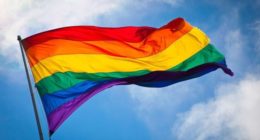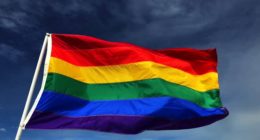By Natasha Hadijjah Sebunya

A multifaceted woman and a rising sun on Uganda’s horizon, it was hard for us to pin Lisa Kanyomozi Rabwoni down. We could have just as easily interviewed her for the entrepreneurial or humanitarian section and we have no doubt that she will make it impossible for us to ignore her work in those fields in the future which is why we are comfortable boxing her into literature today.
This year Lisa, as a birthday present to herself, published On the Job. At just 21, she shared with the world some of the pivotal moments in her life through difficult conversations with a therapist, her best friend, a feminist leader, and a feminist icon with whom she navigated the traumas of sexual abuse, the feminist movement and the growing pains of friendship and adulting, a sincere effort to open up real conversations around growing up to contribute to the collective healing we are all doing as a society.
So, you have a written book. Congratulations. What is the best thing about being an author?
Lisa: There were a lot of overwhelming feelings after the book but the two that stood out were one) having my work living in people’s homes and two) hearing what people felt after reading, which led them to share their experiences and publicly relate to my story. We often experience things thinking we are alone or no one could relate to the pain we are currently experiencing and finding community through the book or being a community for people through the book has been beautiful.

You know they say that you should wait until you have fully matured into your thoughts to put them down, why are they wrong?
I think all parts of our being are relevant. There are some opinions I had at the beginning of publishing that I lost during the process of creating the book. A year later, there are things I see differently as well. So in that sense, I can see somewhat the point of waiting for a “matured thought” but I also believe that there is no matured final thought and that we are all constantly evolving and these thoughts we have currently can open up and create conversations about matters that people did not think to explore. As a young woman, I also hear a lot from older people about how I will change, how this is a phase, and I hope I don’t because I do not see what many people think of as maturing as so, to me it’s conforming, it’s giving up and settling for reality, and often it is a reality that sells women short.
Many people say that Uganda’s literary scene is minuscule, in fact, we are infamously known to be part of the “great literary desert”. Do you think this is true?
This is a true statement, we have very poor reading and writing culture as a country but this is not an individual fault that we carry. It goes back to our leadership and the education system that they have accorded Ugandans. The lack of advancement and push towards knowledge acquisition through literature. There is so much to be done to change the culture.
How has being a woman shaped your path to being an author?
Insurmountable amounts. From people undermining me as I tried to get a publishing house to publish my book. To people thinking and commenting that a young woman such as myself couldn’t possibly know enough to go to print. Then there is the myth that women can only read books that other women write.
Do you feel supported by your community?
Overwhelmingly supported is what I would say. I would not have gone on to print the second edition of this book if it wasn’t for how well it was received. I would not have continued to push it if the message I had hoped to convey was not received. I am so thankful for my community, those that I know personally and those that I am yet to meet.
What do you think Uganda gets right i) as a society ii) as a government in supporting young women like yourself. What systematic changes do you think can be made to enable more Lisas from our society?
What is more Lisas? I think I have had and still enjoy many privileges as an individual that I owe to the “Lisa” status so it would be unfair to give a societal response when it comes to that. A lot of who I am is owed to class and the opportunities I have been able to experience because of it. If there is anything, I would say for the government it would be for the improvement of the education system, exploration of talents away from academics, rewards and motivation as well as the creation of opportunities. As I type this, I am wondering “What Uganda?”, but I guess it is the job of creatives to dream.
What are some of the issues that your book explores? Why did you think that of all the mediums, in which you happen to be very popular, a book was the ideal way to communicate your message?
The book explores four different conversations, feminism, sexual violence, friendship and choosing yourself as a young woman. I have shared on all topics on different mediums but the book seemed the more concrete place to share these thoughts, experiences and conversations. It was a piece of carefully documented work that people could sit with and think through.
What do you say to people who think the era of the book is finished?
The era of the book will never be finished, there is so much knowledge that we keep coming to and need to experience. THere are so many stories to tell and lives to know personally and as we advance into a more digital realm, the book will always supersede the latter in bringing the point home.









